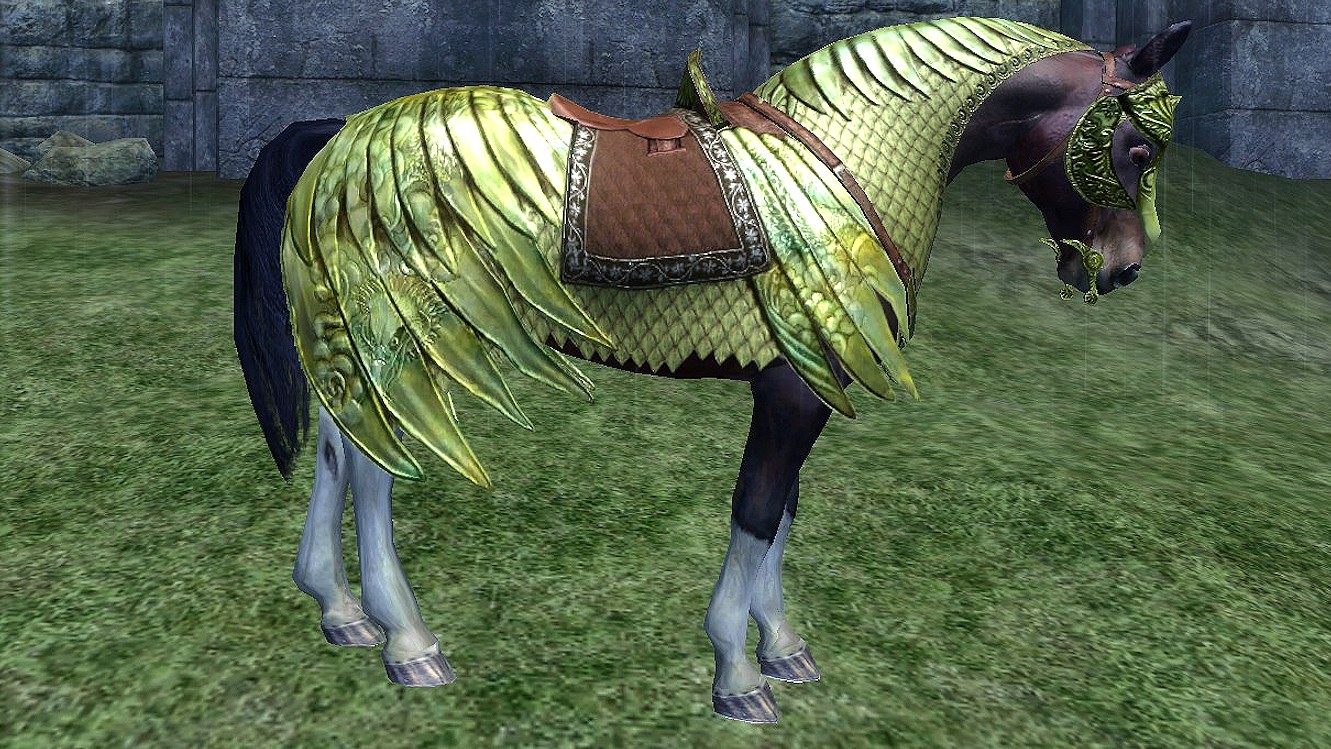Bethesda discusses horse armor and the power of mods

Bethesda’s infamous Horse Armor DLC – the company’s first add-on for The Elder Scrolls IV: Oblivion – has a reputation for being among the lamest early DLC offerings. While that may be true on the surface, it was also a gateway of sorts for Bethesda, coming at a time when the company was wrestling with ideas for how to approach the newly developed concept.
The widely derided DLC “did a lot of stuff for us internally,” Bethesda Studios level designer Joel Burgess said during a presentation at GDC on Tuesday.
"Back in 2005 developers were wondering: what does DLC even mean? How do we make it? How do we expect to know what people even want to play or what it's going to cost?
"We needed something that would test our systems, add some new art and dialogue, and add some new hooks and quests to the game. [It would need to] test the pipeline and feel out the market for what was the best thing we could possibly do.
“So we came up with horse armor," Burgess said.
Nowadays, NexusMods and Steam Workshop have several horse armor mods for Skyrim. They’re not $1.99 and no one complains about them: they’re just there if you want them, and they weren't made with a profit motive. Modding was the focus of Burgess’s talk, and he made a case for modding tools being a key factor in the success of Bethesda’s RPGs, naming a number of obvious benefits (longevity, community dedication, ongoing media attention) in addition to some less obvious upsides.
“Mods can demonstrate alternative reality versions of your game,” Burgess said. He cited several key mods – including Oscuro’s Overhaul for Oblivion and Deadly Reflex for Skyrim – as influences for the team’s future work on the game.
Keep up to date with the most important stories and the best deals, as picked by the PC Gamer team.
Additionally, modders can expand on a game's universe with “less polish and no canon”, the kind of things studios are otherwise eager to nurture. Modders can explore possibilities that are otherwise off limits to the original development team, and thus reframe a game's essence in interesting ways.
Harking back to the ‘90s and his formative experiences using Duke Nukem 3D’s BUILD engine, Burgess compared the ‘90s modding heyday with modern indies, describing both as “disruptive” forces in an otherwise uptight, orthodox market. While ‘90s modders had the likes of id Software and 3D Realms championing their cause (to name a few), nowadays Unity can take a lot of credit for the flourishing indie scene, Burgess said, in the way it has helped make game development more approachable and less exclusive. He drew parallels between Unity and the modding culture of the 1990s.
With Source 2 and Unreal Engine 4 now freely available to aspiring and experienced developers alike, the climate is looking up for independent studios. But if all you want to do is make some fancy horse armor for your Skyrim steed, then you’re welcome to do that too, and Bethesda is eager to ensure that lessons learnt modding previous Elder Scrolls games will apply in the future.
“Even though we moved to a new engine under the hood [with Skyrim], it was important for us to maintain the same workflows, editor tools and pipelines we were used to, because that way our content creation process wasn't going to be disrupted,” Burgess said.
“This also meant that out modders could draw upon a decade of experience. Anybody who had done modding for any of our previous titles would be able to mod for Skyrim and have a familiarity with those tools."
It's a smart approach: Skyrim's modding scene continues to flourish, to the extent that last week it was the first game to bypass Steam Workshop's 100mb filesize limit. Meanwhile, Skyrim continues to be among the most played games on Steam four years after its release.

Shaun Prescott is the Australian editor of PC Gamer. With over ten years experience covering the games industry, his work has appeared on GamesRadar+, TechRadar, The Guardian, PLAY Magazine, the Sydney Morning Herald, and more. Specific interests include indie games, obscure Metroidvanias, speedrunning, experimental games and FPSs. He thinks Lulu by Metallica and Lou Reed is an all-time classic that will receive its due critical reappraisal one day.

